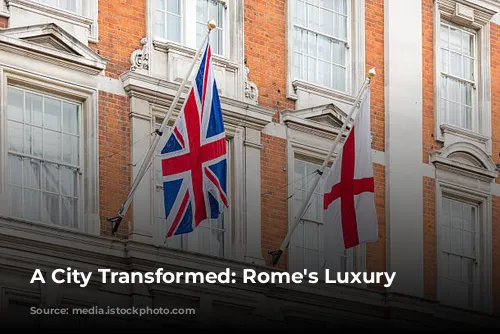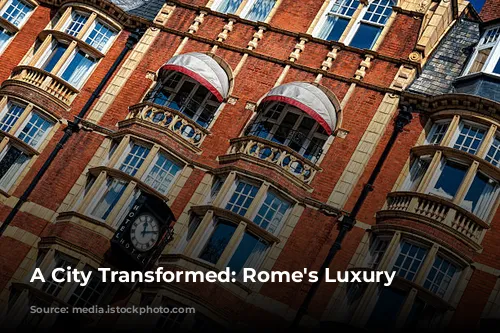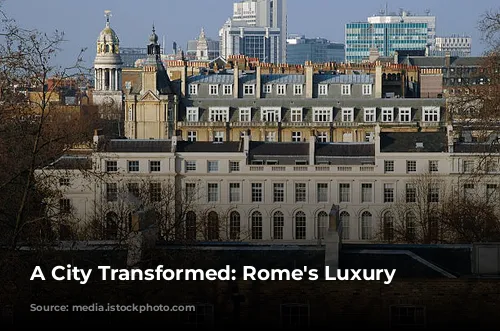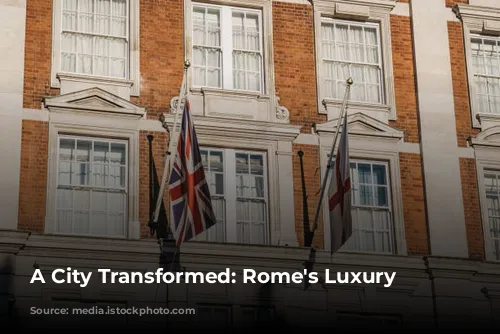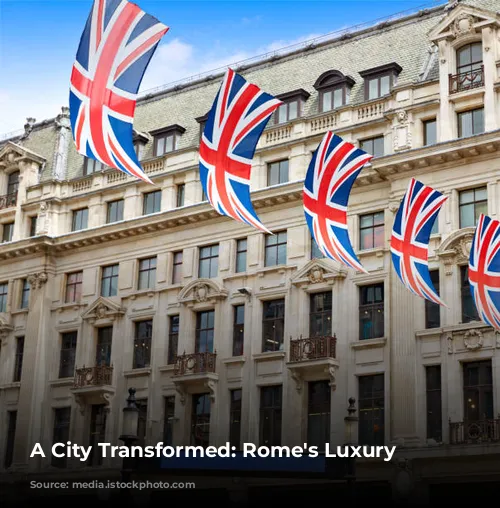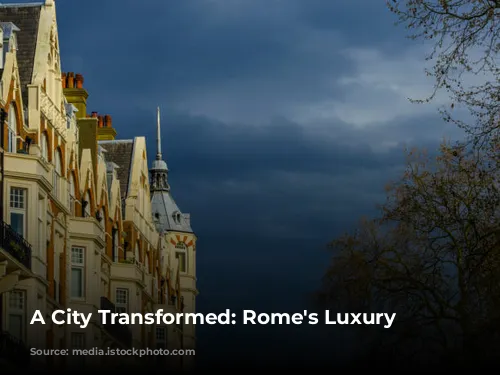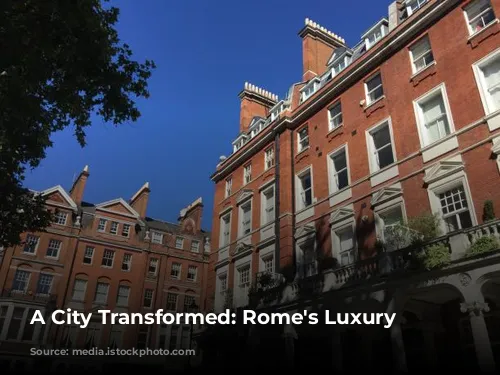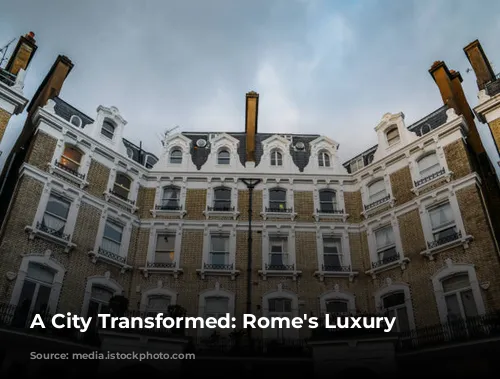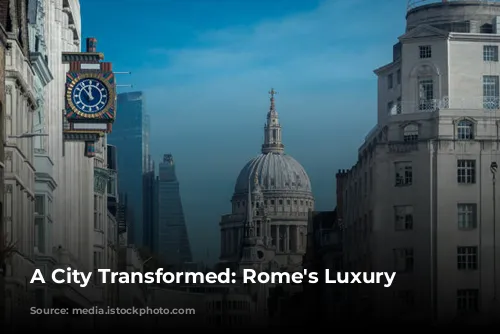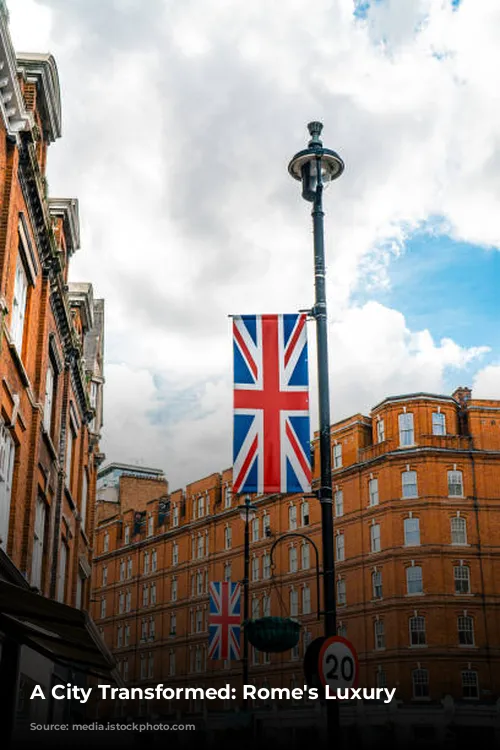Rome, a city steeped in history, is experiencing a dramatic shift towards luxury, with an influx of five-star hotels reshaping its landscape. This surge in opulent accommodations is drawing in wealthy tourists and creating a wave of change that has both its supporters and critics.
A City of Opulence
The heart of Rome is witnessing a dramatic change, with new luxury hotels sprouting up like mushrooms after a rain. Giuseppe Botrugno, owner of a modest eatery, sees the transformation firsthand. “There is one opposite, one around the corner, and another planned next door to that one,” he remarks, reflecting the rapid growth of the high-end hospitality sector. The once-abandoned Palazzo Salviati Cesi Mellini, a 15th-century building with a UNESCO-listed façade, now houses the sleek Six Senses, the first of its kind in Italy.
The city’s leaders are embracing this luxurious tide, citing the influx as a sign of Rome’s renewed appeal. According to Luxury Travel Intelligence, Rome ranked second only to London in attracting the world’s top luxury hotels in 2023. The arrival of notable names like Bulgari, Four Seasons, and the Robert De Niro-backed Nobu Hotel Roma is indicative of the city’s newfound allure to high-end travelers.
A Balancing Act: Luxury’s Impact
While the influx of luxury hotels breathes new life into the city, it also stirs up concerns about the impact on its character and residents. Botrugno, despite acknowledging the beauty of the revitalized Palazzo Salviati Cesi Mellini, questions whether the city might lose its authentic charm amidst the growing opulence.
A prominent voice opposing the unchecked rise of luxury is Vanna Mannucci, an advisor at the Rome unit of the heritage group Italia Nostra. She worries that the focus on high-end accommodations could push out residents and small businesses, ultimately contributing to the city’s decline. Her colleague, Riccardo D’Aquino, echoes this concern, highlighting the potential alteration of the city’s historic buildings to cater to luxurious tastes.
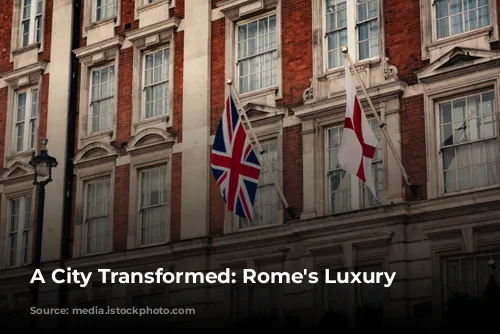
A Divide: High-End Hospitality and Local Businesses
The luxury boom has also sparked friction between owners of small and medium-sized hotels and the newly arrived international investors. Steve Brenner, owner of the Beehive hostel, laments the preferential treatment afforded to high-end chains, claiming that their permits are processed more quickly than those of smaller establishments.
Sergio Franci, the owner of Antica Stamperia Trevi, a printing shop that has been on Via dell’Umiltà since 1780, acknowledges the benefits of the luxury hotels but argues that not enough is being done to support historic businesses. He fears that the relentless focus on luxury will come at the expense of Rome’s unique character, which is shaped by its small businesses and local communities.
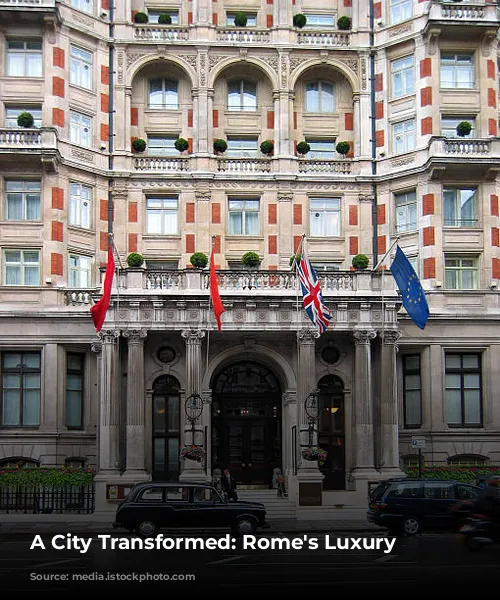
A Call for Balance: A Vision for the Future
While Rome’s economic resurgence is evident, there’s a growing need to ensure that the city’s rich history and its residents are not lost amidst the pursuit of luxury.
As Rome navigates this period of rapid change, it is crucial to find a balance that preserves its spirit while welcoming the world’s discerning travelers. A long-term vision that encompasses the needs of both the city’s residents and its visitors is essential for ensuring a sustainable future for the Eternal City.
